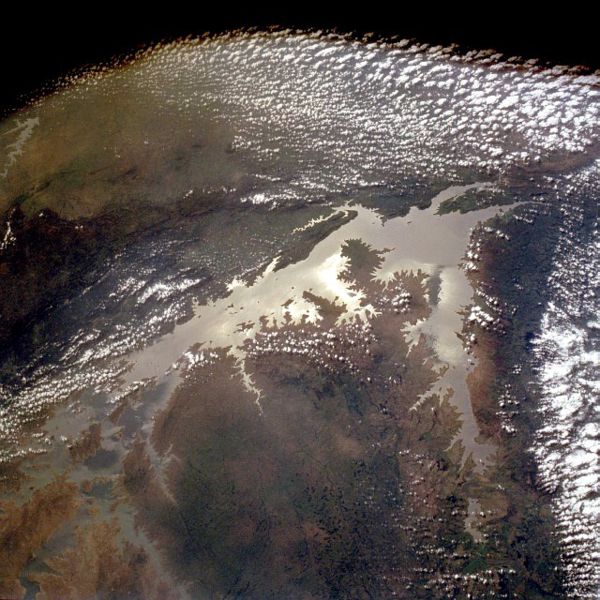 Freshwater ecosystems are losing even more species than
Freshwater ecosystems are losing even more species than
terrestrial or marine environments. Why? Because of dams. More than 80,000 major dams and 2.5 million smaller
reservoirs have altered natural hydrology across the U.S. The result: nearly 1,000 introduced species disrupting native aquatic systems.
The study published in the September Frontiers in Ecology
and the Environment concludes that dam construction and biological invasions are closely linked, reports Environmental Science & Technology.
A University of Colorado Boulder team analyzed conditions in 4200 natural lakes and 1081 impoundments in Wisconsin and Michigan. They looked at five widespread nuisance species: Eurasian water milfoil (Myriophyllum spicatum), zebra mussel (Dreissena polymorpha), spiny water flea (Bythotrephes longimanus), rainbow smelt (Osmerus mordax), and rusty crayfish (Orconectes rusticus).
Species were 2.4 to 7.8 times more likely to occur in dammed water bodies than in natural lakes. Reservoirs were significantly more prone to hosting multiple non-natives. Boaters and fishers are the unwitting coyotes smuggling in the aliens. Zebra mussels attach to boat bottoms. Milfoil plants clings to boat trailers. Smelt and crayfish used to be used as bait, though that’s now illegal.
Of course the troubles with dams don’t end there. Some large dammed areas become major greenhouse gas emitters (though in all fairness hydroelectric plants are way cleaner than coal). Many dams disrupt fish breeding cycles. Many large dams submerge unique ecosystems and/or human cultures and artifacts. Some superlarge dams and their lakes may stress load earthquake faults.
Just to make things even weirder, there are now plans to log a Ghanaian forest submerged by the Akosombo Dam that created Lake Volta nearly 50 years ago. Old-growth, rot-resistant hardwood trees like ebony, wawa, and odum are still in excellent shape underwater, reports ENN. The project is led by a privately owned Canadian company, CSR Developments. They aim to harvest 1500 million cubic feet of timber worth about $4 billion. They estimated there are 12 million acres of salvageable submerged tropical timber in hydroelectric reservoirs.
Ideally the underwater harvet would help slow deforestation on land and curb emissions of greenhouse gases linked to burning of forests.
Stay tuned.
Julia Whitty is Mother Jones’ environmental correspondent, lecturer, and 2008 winner of the Kiriyama Prize and the John Burroughs Medal Award.















